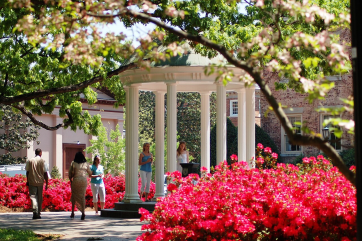NCAA Investigating 20 Member School for Alleged Academic Misconduct, Official Confirms
By Russell WesterholmThe NCAA is investigating 20 member schools for academic misconduct relating to improper help provided to student-athletes.
Jonathan Duncan, the NCAA's vice president for enforcement, told the Chronicle of Higher Education his department is investigating 20 schools for alleged academic misconduct. He said 18 of the schools are in Division I while one is in Division II and one is in Division III.
He would not give many specifics, but said the cases are at different phases of completion and for an array of reasons. Most are due to student-athletes receiving more academic benefits than what is permissible by NCAA rules. Duncan is investigating certain non-athletic-department personnel for providing the extra help.
He also would not disclose which schools were under investigation.
Duncan told the Chronicle last month the number of academic fraud probes was somewhere between 12 and 15, meaning the NCAA opened up about half a dozen investigations since.
The most high-profile academic fraud case in recent memory - and perhaps the history of the NCAA - was at the University of North Carolina (UNC) - Chapel Hill. An investigator hired by the school determined UNC held false classes in the African and African-American Studies (AFAM) department for two decades.
In an interview with ESPN's "Outside the Lines" in June 2014, former UNC basketball player Rashad McCants said high ranking athletic department officials knew about the student-athletes taking these false classes.
The NCAA first took note of widespread academic fraud among its member institutions last year, the Chronicle reported, forming an "academic-integrity group" chaired by Katherine Sulentic, a former academic adviser at the University of Colorado at Boulder.
"The timing is right to dedicate more resources to this," Ms. Sulentic told the Chronicle. "Everyone's antenna is up about academic fraud on a college campus in general."
She offered insight into how athletic department personnel are implicit in academic misconduct.
"It's not necessarily a directive about what to do-'I need you to write this kid's paper,'" she said. "They might say, 'In exchange for you working with me in the future, I'm going to get you eligible to play Division I ball.'
"What consistently surprises me is the definition of the word 'help.'"








